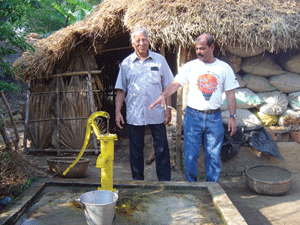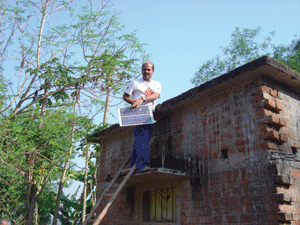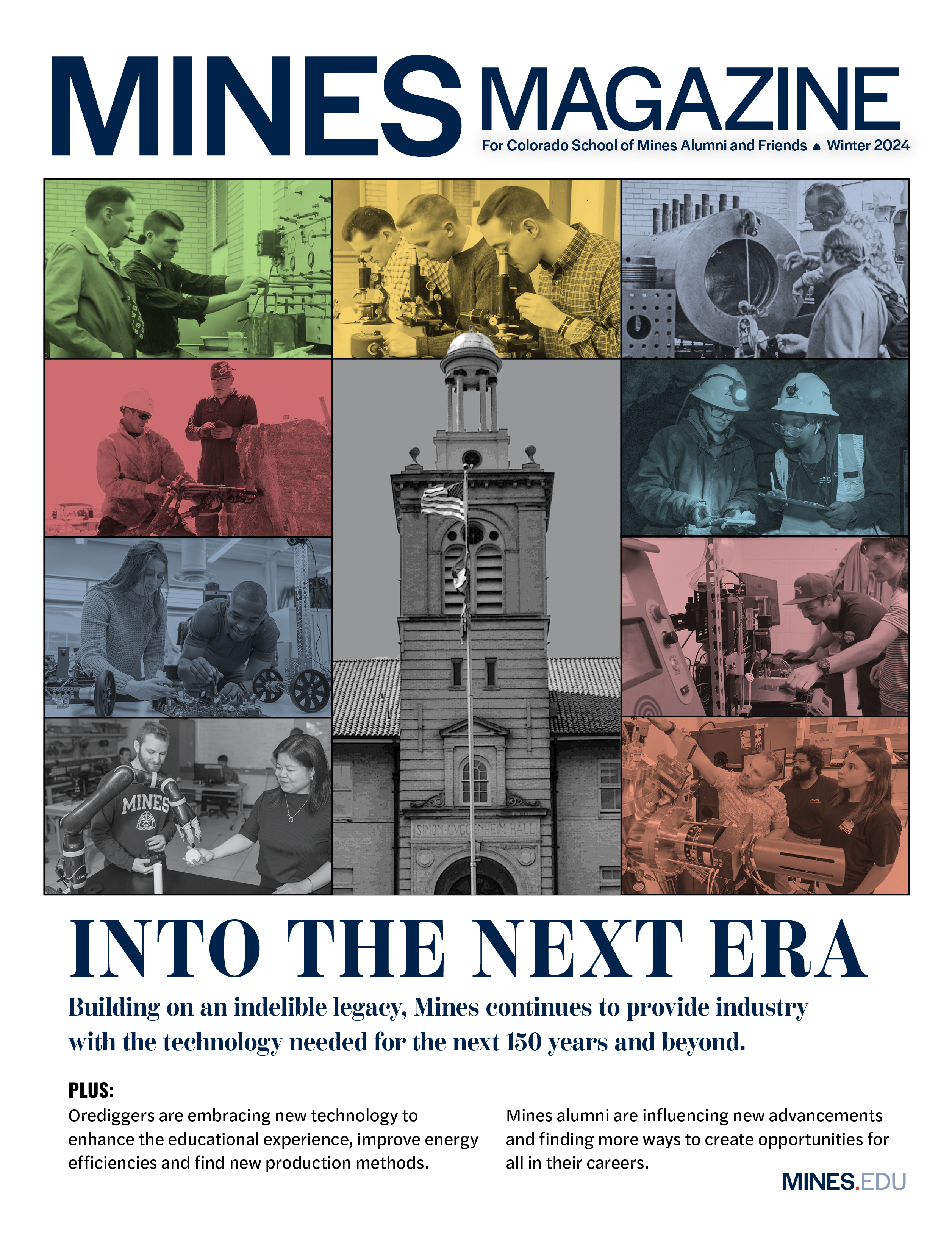
Kar discusses alternative water supplies with his uncle, Madhab Dash
“How is this going to be useful for the village?” Durga Prasad Kar’s father would ask as his son continued to add to a portfolio of academic qualifications. Kar MS ’02, PhD ’10 holds an engineering degree and an MBA from universities in India, a postgraduate diploma in electric power earned in Norway, and a master’s and PhD in mineral and energy economics from Mines.
It wasn’t until he got to Golden that Kar figured out the answer to his father’s question. He was studying the economics of the electric grid, the efficiency of free markets and emerging solar technologies, when he finally realized how his academic work could be applied to village life in rural India where he grew up.
“I thought, the problems of rural India, where villages have no reliable source of electric power, can be reversed by using renewables and market competition,” says Kar.
In 2003, just two years after beginning his doctoral program, Kar and his wife, Shreemayee, foundedAlternative Development Initiative for Rural Engagement (ADIRE), a nonprofit aimed at improving the lives of the rural poor in India through appropriate technology, renewable energy and local capacity building. Around the same time he also changed his PhD thesis to a comparison of the costs of the government-subsidized rural electric grid in India with off-grid solar photovoltaic generation.
“India has over 600,000 villages with 700 million people, two-thirds of whom lack access to electricity and clean cooking fuel,” says Kar. “Many of them lack basic necessities, such as roads, access to clean water, even mosquito nets. These people are so poor, and the electricity they can access is so unreliable, there are no income-generating activities available to them. This leads them to leave the village and migrate to the cities, where they live in slums and consume more fossil fuel.”
Kar believes that rural access to small-scale, reliable and renewable energy is one key to slowing rural to urban migration. The per-person demand for electricity is much lower in rural areas than in urban ones, and can be met locally from renewable sources at a lower cost than expanding the grid, Kar adds. Not only does this enable more people to remain in their villages, carbon footprints are also reduced.

Without a reliable electrical grid, technology use depends on photovoltaics
ADIRE began its work in a small village in Orissa, a poor state in eastern India, but has since expanded to other villages, with initiatives in health and hygiene, education, skills training, microfinancing and renewable energy generation. In an impoverished area of one village, they built a brand new solar-powered school that is also used as a skills-training center for adults. Villagers staff the school and maintain the solar technology, as well as the laptops, DVD players and LED projectors.
ADIRE has become a family business: Kar and Shreemayee travel to the area annually, where even their daughters get involved by teaching literacy, English language and dance. During the rest of the year, Shreemayee manages school, microfinance and production activities from their home in Green Bay, Wisconsin. Kar’s mother helps out with various projects from her community in India. Kar’s father died in 2006 aged 83, but until shortly before the end of his life, he was going house-to-house collecting data for Kar’s thesis.
Just before the fall/winter 2010 issue of Mines magazine went to press, Kar was awarded his PhD. While it is the greatest achievement of his academic career, attaining it has been much more than an academic exercise. “I used to tell my father, ‘No one person can make a change,'” says Kar, recalling how he’d sometimes respond when his father questioned him about his protracted education. But Kar is proving himself wrong, which is a good thing for more than one thousand families that ADIRE has touched so far in rural India.
Anne Button
Editor�s Note: In addition to the many contributions of his family and other community members in India, Kar’s work on his thesis was also supported by his thesis committee, including his advisor Carol Dahl, professor of economics and business (CSM); Roderick Eggert, professor and director of Mines’ Division of Economics and Business; Joy Godesiabois, assistant professor of economics and business (CSM); John Heilburn, associate professor of liberal arts and international studies (CSM); and Gaurav Bansal, assistant professor of management information systems at the Austin E. Cofrin School of Business at the University of Wisconsin, Green Bay .



